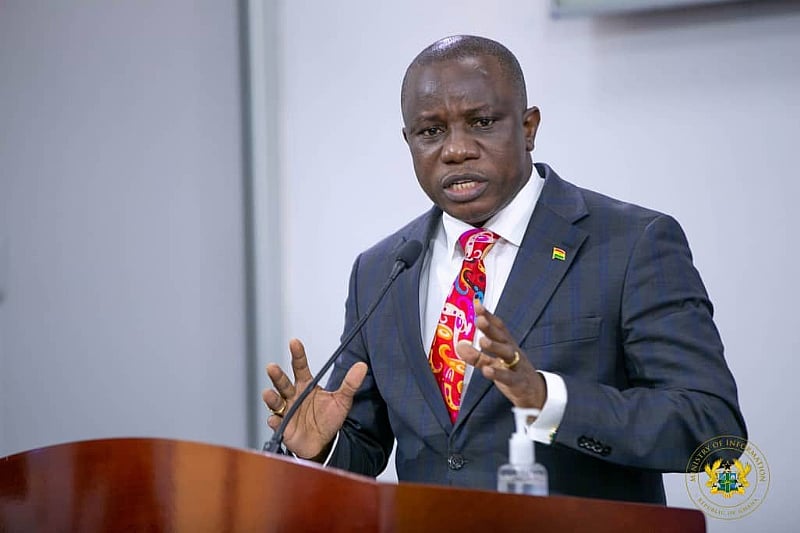The controversy surrounding President John Dramani Mahama’s use of a private jet owned by his brother, Ibrahim Mahama, for official trips to Senegal and The Gambia has ignited a debate about the availability and condition of Ghana’s presidential aircraft. Former Defence Minister, Dominic Nitiwul, has asserted that the aircraft is fully operational and readily available for the President’s use, contradicting the government’s explanation for utilizing a private jet. This disagreement has brought to light questions about transparency, accountability, and the appropriate use of public resources. The heart of the matter lies in the conflicting narratives presented by the government and the former Defence Minister, raising concerns about the veracity of the information being disseminated to the public.
Mr. Nitiwul, speaking in Parliament, vehemently refuted the government’s justification for using Ibrahim Mahama’s private jet. He emphasized that the presidential aircraft was in active service until the final days of the previous administration under President Nana Akufo-Addo, including being used just two days before the handover of power. This assertion directly challenges the government’s narrative that the aircraft was undergoing review, necessitating the use of a private alternative. The former Defence Minister’s statement implies that the aircraft was in perfect working condition and readily available for President Mahama’s use from the outset. This raises questions about the necessity and justification for using a private jet, particularly given the potential implications for perceptions of propriety and conflicts of interest.
The government’s explanation, delivered by Acting Presidential Spokesperson Felix Kwakye Ofosu, stated that the Communications Squadron, the Air Force unit responsible for the presidential aircraft, was conducting a review of the aircraft. Mr. Ofosu also assured the public that the use of Ibrahim Mahama’s private jet incurred no cost to the state. While this assertion attempts to allay concerns about financial impropriety, it does not address the core issue of why the presidential aircraft was not utilized if it was, as Mr. Nitiwul claims, fully operational. The lack of clarity surrounding the nature and duration of the purported review of the presidential aircraft further fuels speculation about the government’s motivations.
The discrepancy between the government’s narrative and Mr. Nitiwul’s account raises several critical questions. Firstly, it casts doubt on the transparency of the government’s decision-making process regarding the use of the presidential aircraft. If the aircraft was indeed operational, why was the option of using it not explored? Secondly, the incident raises concerns about potential conflicts of interest, given the involvement of the President’s brother in providing the alternative transportation. Even if no financial cost was incurred, the optics of using a family member’s private jet for official business can create perceptions of favoritism and a lack of adherence to established protocols.
The implications of this incident extend beyond the immediate question of aircraft usage. It highlights a broader concern about accountability and the flow of information within the government. The conflicting narratives presented by the government and the former Defence Minister erode public trust and create an environment of uncertainty. It is imperative for the government to address these concerns head-on by providing a clear and unambiguous explanation for the decision to use a private jet, including details about the status of the presidential aircraft and the reasons for any purported review.
Ultimately, this incident underscores the importance of transparent and accountable governance. The public deserves clear and consistent information about the use of public resources, especially when it involves high-profile figures and potential conflicts of interest. A thorough and transparent investigation into the circumstances surrounding the use of Ibrahim Mahama’s private jet would not only address the immediate concerns but also contribute to strengthening public trust in the government’s commitment to ethical and responsible governance. Furthermore, establishing clear protocols and procedures for the use of the presidential aircraft can prevent similar controversies from arising in the future, ensuring that decisions regarding public resources are made with transparency and accountability.


